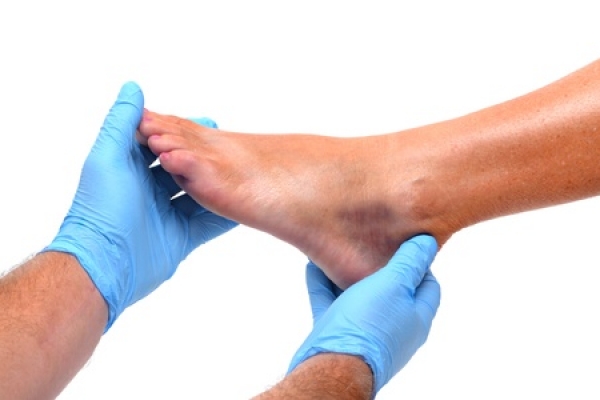Peripheral arterial disease (or PAD) often affects patients that have diabetes. At Superior Foot & Ankle Care Center we always caution these patients to take extra care with their feet due to the serious one-two punch these diseases can deliver. PAD is a disease that results in poor circulation. Good blood flow is necessary for healing. Patients with diabetes often experience neuropathy or loss of sensation in their feet and toes. This means it can be difficult to perceive pain, heat or even itchy rashes—all of which may signal a situation that would result in an open sore or wound. Add PAD to that and you could end up with an ulcer or wound on your foot that will not heal. This, in turn, can lead to a dangerous infection, and, in the worst case scenario, possible amputation.
Simple Precautions
If you have diabetes you should already be on a regular schedule of checkups with our podiatrists, Dr. Victoria Foley and Dr. Constance Omelas in order to carefully monitor your condition. The foot doctor will also look for signs of PAD. In addition to having diabetes, other factors that increase your risk for PAD include:
- Being over age 50
- Smoking
- Sedentary lifestyle
- High cholesterol
- High blood pressure
- Family or personal history of PAD
With or without PAD it’s important to avoid putting your feet at risk of injury or infections. To this end, you should:
- Avoid walking barefoot. In public places, this will reduce your risk of coming in contact with fungi and bacteria that can cause infections like athlete’s foot and fungal toenails. At home, you will be far less likely to get a cut or puncture wound on the bottom of your foot if your feet are covered.
- Wear shoes that fit properly. Shoes that are too small can cause blisters or exacerbate conditions such as hammertoe and bunions. Periodically check the insides of your shoes to make sure there are no rough spots or loose stitching to cause friction against your skin.
- Keep skin soft and supple by applying a rich moisturizer to your feet. Avoid the area between your toes, however, to prevent an excessively moist environment where fungi can breed.
- Get in the habit of checking your feet regularly for any changes or abnormalities. If you spot anything unusual, contact our Long Beach office immediately to get it checked by calling: (562) 420-9800.

